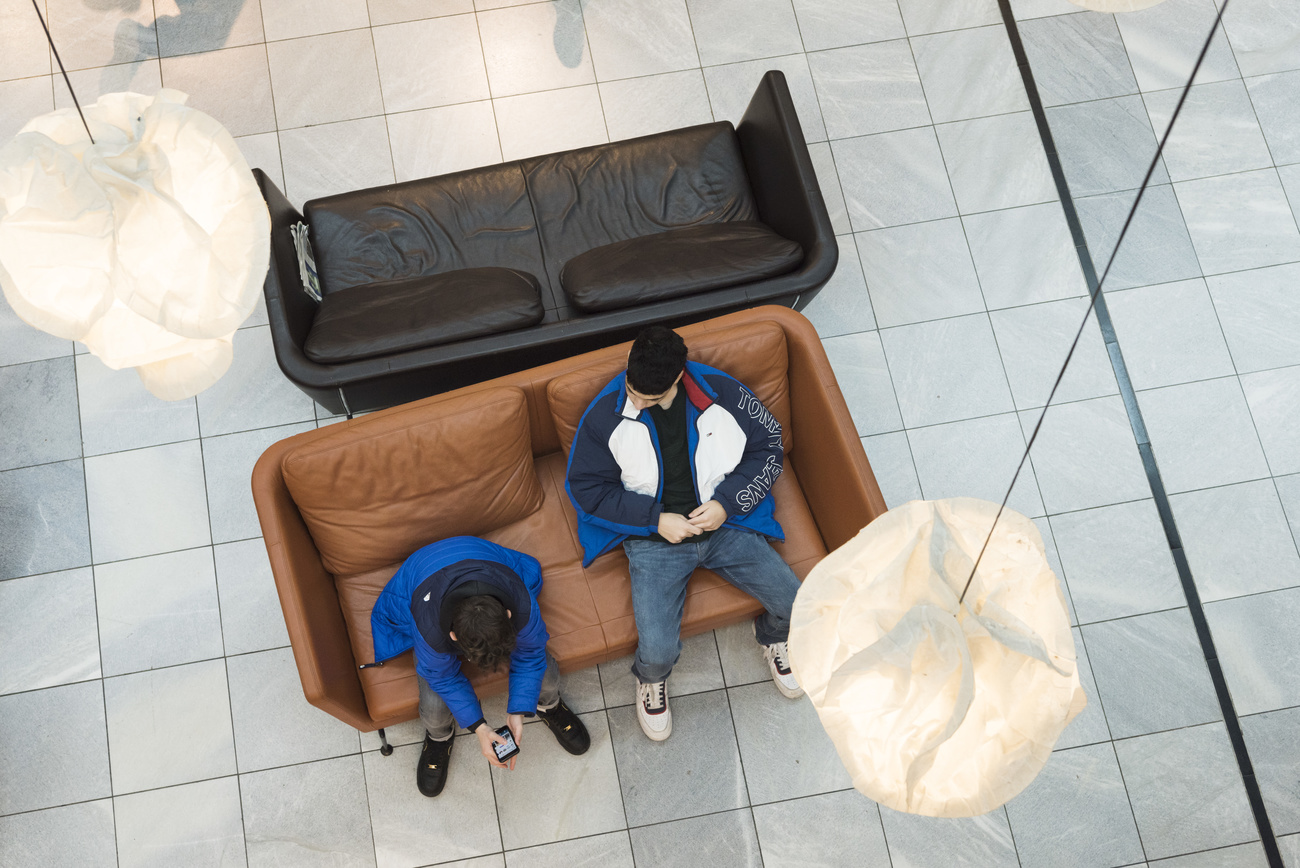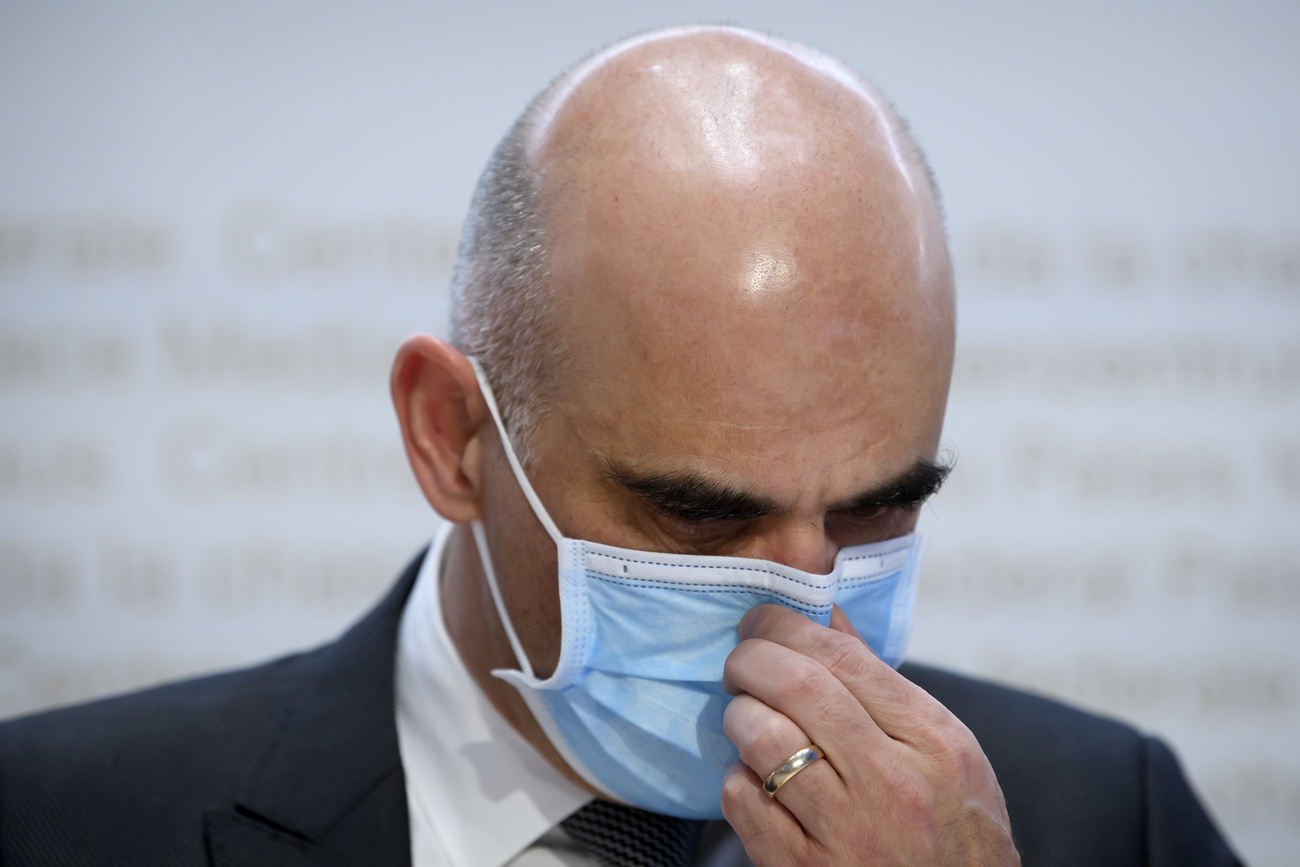
How Covid-19 hits youngsters hard in Switzerland

Faced with restrictions on their social life, frustrated and anxious about their futures, the coronavirus pandemic is taking a heavy toll on the wellbeing of young people in Switzerland.
Zurich’s Sechseläutenplatz – a popular lakeside square and meeting place for young people in the city centre – has become a Covid flashpoint in recent months.
Violent incidents like the one on Saturday February 6 have become more frequent during the pandemic. That night two people on the square were brutally attacked by a larger group. When the police intervened officers were pelted with bottles. One 16-year-old was arrested.
Videos of the skirmish went viral on social media. A teenager who witnessed the scene told 20 Minutes online news site that incident had turned violent because of the lockdown.
“Everything is closed, that’s why it’s escalating,” he said. “It’s brutally exhausting that we can’t do anything. I feel locked in.”
Super stressed
“The strain on children and young people due to the pandemic is high,” said Lulzana Musliu, a spokesperson for Pro Juventute, a charitable foundation supporting the rights and needs of children and youth.
Pro Juventute’s helpline has registered growing demand from young people. Psychological consultations increased by 40% during the October to December period compared to the same period last year, she said.
The sense of isolation caused by the pandemic was reflected in a recent survey. The research firm Sotomo found that nearly 60% of 15-34-year-olds said they felt isolated and alone in society, more than any other age group.
Young people, anxious about their futures, appear to have been especially affected by stress during this period
A University of Basel studyExternal link looking into psychological stress among the Swiss population during the second Covid-19 wave showed a rise of people with severe depressive symptoms from 9% in April to 18% in the second lockdown in November.
The incidence of severe depressive symptoms was particularly high among young people: 29% among 14-24-year-olds in November. This was twice as high as among 45-54-year-olds (14%).
Parties on trains
With restaurants, bars and nightclubs closed across the country, some young people in Zurich have started organising parties on trains. At the end of January, an Instagram post showing youngsters partying in a train was ‘liked’ over 10,000 times. One person commented: “Who’s afraid of the cops? Not us!”
The German-language Tages-Anzeiger newspaper reported that young people were staying on trains with friends for long periods because they are allowed to drink and eat inside the carriages – and there are toilet facilities.
The phenomenon is not unique to Switzerland. Almost daily news reports talk of police breaking up illegal lockdown-flouting parties and gatherings in houses, boats, hotels and parks in other countries.
An illegal warehouse rave that began on New Year’s Eve in France attended by 2,500 people ended in numerous arrests and clashes. Last month, the two men who organised a mass snowball fight in Leeds, in northern England, involving hundreds of students during the lockdown were each fined £10,000.

More
Second Covid wave much more stressful than first
Need for human contact
The Swiss authorities imposed a new partial lockdown on January 15. Some restrictions already in place were extended to the end of February. Since last December, sports and leisure facilities have been closed. Sports and cultural activities involving more than five people aged 16 and over remain banned, and gatherings of more than five people are not allowed, either publicly or privately. The government is due to review these measures on Wednesday.
And since November, vocational schools and universities have been empty as the teaching moved back online.
Young people are arguably “better connected” than other generations thanks to their phones and computers. So shouldn’t they be suffering less from the stress of isolation?
“They have the digital skills, which are being constantly strengthened, but personal human exchange still remains essential for young people’s development,” said Musliu.
“Young people construct their self-image through interaction with others,” she noted.
Covid-19 restrictions are hitting young people particularly hard “because they seek community more than other age groups”, she said. “Seeing and being seen is part of their self-worth.”
Translated from German by Simon Bradley

More
Pressure builds on Swiss government over Covid lockdown

In compliance with the JTI standards
More: SWI swissinfo.ch certified by the Journalism Trust Initiative






























Join the conversation!